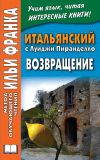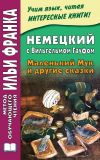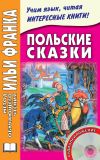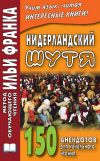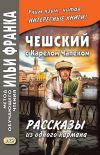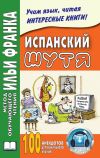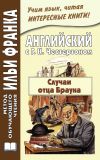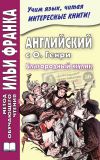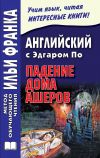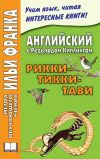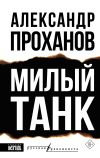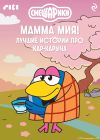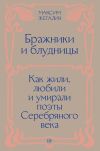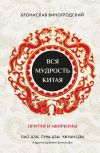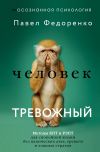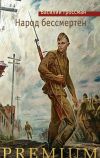Текст книги "Английский с Г. К. Честертоном. Рассказы об отце Брауне / Gilbert Keith Chesterton. The Innocence of Father Brown"

Автор книги: Гилберт Честертон
Жанр: Иностранные языки, Наука и Образование
Возрастные ограничения: +16
сообщить о неприемлемом содержимом
Текущая страница: 2 (всего у книги 13 страниц) [доступный отрывок для чтения: 3 страниц]

John Crook, journalist, had heard of that eminent City magnate; and it was not his fault if the City magnate had not heard of him; for in certain articles in The Clarion or The New Age Sir Leopold had been dealt with austerely. But he said nothing and grimly watched the unloading of the motor-car, which was rather a long process. A large, neat chauffeur in green got out from the front, and a small, neat manservant in grey got out from the back, and between them they deposited Sir Leopold on the doorstep and began to unpack him, like some very carefully protected parcel. Rugs enough to stock a bazaar, furs of all the beasts of the forest, and scarves of all the colours of the rainbow were unwrapped one by one, till they revealed something resembling the human form; the form of a friendly, but foreign-looking old gentleman, with a grey goat-like beard and a beaming smile, who rubbed his big fur gloves together.
Long before this revelation was complete the two big doors of the porch had opened in the middle (задолго до окончания этого процесса: «раскрытия» две большие двери веранды при входе в дом отворились посередине; revelation – открытие; раскрытие /тайны и т. п./; complete – полный; завершенный; porch – крыльцо; веранда /при входе в дом/; in the middle – посередине; middle – середина), and Colonel Adams (father of the furry young lady) had come out himself to invite his eminent guest inside (и полковник Адамс (отец молодой леди в шубке: «меховой молодой леди») появился сам, чтобы пригласить в дом: «внутрь» высокопоставленного гостя; come out – выйти, выходить; to invite – приглашать; invitation – приглашение; eminent – видный; выдающийся; inside – внутренний; внутрь). He was a tall, sunburnt, and very silent man (он был высоким, загорелым и очень молчаливым человеком; sunburnt – загорелый; to burn – гореть; silent – безмолвный; молчаливый), who wore a red smoking-cap like a fez (он был в красном колпаке, напоминающем феску; to wear – носить; smoking-cap – колпак /защищающий волосы от запаха дыма при курении/; fez – феска), making him look like one of the English Sirdars or Pashas in Egypt (что делало его похожим на одного из английских сардаров или египетских пашей; sirdar – сардар /фарси/, командующий армией /ист./; pasha – паша /ист./).

Long before this revelation was complete the two big doors of the porch had opened in the middle, and Colonel Adams (father of the furry young lady) had come out himself to invite his eminent guest inside. He was a tall, sunburnt, and very silent man, who wore a red smoking-cap like a fez, making him look like one of the English Sirdars or Pashas in Egypt.
With him was his brother-in-law, lately come from Canada (с ним был его шурин, недавно приехавший из Канады; brother-in-law – «брат по закону»: брат мужа/жены; муж сестры /зять; шурин; свояк; деверь/), a big and rather boisterous young gentleman-farmer (крупный и достаточно громкоголосый молодой джентльмен-фермер; boisterous – шумный, громкоголосый), with a yellow beard, by name James Blount (с желтоватой бородой, по имени Джеймс Блаунт; beard – борода). With him also was the more insignificant figure of the priest from the neighbouring Roman Church (с ним также была еще более незначительная личность – священник из соседней римско-католической церкви; insignificant – незначащий; незначительный; priest – священник; neighbouring – прилегающий; соседний; neighbour – сосед; church – церковь); for the colonel’s late wife had been a Catholic (поскольку покойная жена полковника была католичкой; for – для, ради; так как, поскольку; late – поздний; покойный), and the children, as is common in such cases, had been trained to follow her (и дети, как обычно бывает в таких случаях, воспитывались в католичестве: «обучались следовать за ней»; common – общий, общественный; общепринятый, распространенный; case – случай; to train – тренировать/ся/; обучать/ся/; to follow – следовать; идти за). Everything seemed undistinguished about the priest (все в священнике казалось непримечательным; to seem – казаться; undistinguished – неразличимый, неясный; незаметный, непримечательный), even down to his name, which was Brown (даже вплоть до его имени, которое было Браун; down to – до, вплоть до; down – вниз; вдоль); yet the colonel had always found something companionable about him (однако полковник всегда находил в нем что-то приятное для общения: «находил его общество приятным»; to find – находить; companionable – общительный, компанейский), and frequently asked him to such family gatherings (и часто приглашал его /прийти/ на такие семейные встречи; to ask – спрашивать; просить; gathering – собрание; встреча; to gather – накапливать; собирать/ся/).

With him was his brother-in-law, lately come from Canada, a big and rather boisterous young gentleman-farmer, with a yellow beard, by name James Blount. With him also was the more insignificant figure of the priest from the neighbouring Roman Church; for the colonel’s late wife had been a Catholic, and the children, as is common in such cases, had been trained to follow her. Everything seemed undistinguished about the priest, even down to his name, which was Brown; yet the colonel had always found something companionable about him, and frequently asked him to such family gatherings.
In the large entrance hall of the house there was ample room even for Sir Leopold (в большом вестибюле/ холле дома было достаточно места даже для сэра Леопольда; entrance hall – вестибюль; холл; прихожая; ample – изобильный; достаточный; room – комната; помещение; пространство) and the removal of his wraps (и снятия: «удаления» всей его верхней одежды; removal – перемещение; удаление; wraps – верхняя одежда). Porch and vestibule, indeed, were unduly large in proportion to the house (веранда при входе в дом и вестибюль на самом деле были чрезмерно большими в пропорциональном отношении к дому; indeed – в самом деле; действительно; unduly – чрезмерно), and formed, as it were, a big room with the front door at one end (и образовывали фактически большое помещение с входной дверью с одной стороны: «одного конца»; to form – приобретать форму; образовывать; as it were – как будто; так сказать; фактически), and the bottom of the staircase at the other (и /низ/ лестницы с другой; bottom – низ; дно; нижняя часть; staircase – лестница; stair – ступенька /лестницы/). In front of the large hall fire, over which hung the colonel’s sword (перед камином в большом холле, над которым висела шпага полковника; fire – пламя, огонь; пожар; камин; to hang – вешать, висеть; sword – меч; шпага), the process was completed (процедура /раздевания/ была завершена; to complete – доводить до совершенства; заканчивать) and the company, including the saturnine Crook, presented to Sir Leopold Fischer (и присутствующие: «компания», включая мрачного Крука, были представлены сэру Леопольду Фишеру; including – включая, в том числе; to include – включать; saturnine – угрюмый, мрачный; present – преподносить, дарить; представлять). That venerable financier, however, still seemed struggling with portions of his well-lined attire (однако этот почтенный финансист, казалось, все еще продолжал бороться с частями своего хорошо сшитого одеяния; venerable – /много/уважаемый; почтенный; to struggle – бороться; line – линия, черта; контур, очертание; attire – одеяние, облачение), and at length produced from a very interior tail-coat pocket, a black oval case (и наконец /он/ достал из внутреннего кармана фрака черный овальный футляр; at length – наконец; length – длина; to produce – производить, вырабатывать; вынимать; давать; interior – внутренний; tail-coat – фрак; tail – хвост; pocket – карман; case – коробка; ящик; контейнер; футляр) which he radiantly explained to be his Christmas present for his god-daughter (который, как он радостно: «сияюще» объяснил, был его рождественским подарком для его крестницы; radiant – светящийся, излучающий свет; лучистый, сияющий; to explain – объяснять, разъяснять; god-daughter – крестница).

In the large entrance hall of the house there was ample room even for Sir Leopold and the removal of his wraps. Porch and vestibule, indeed, were unduly large in proportion to the house, and formed, as it were, a big room with the front door at one end, and the bottom of the staircase at the other. In front of the large hall fire, over which hung the colonel’s sword, the process was completed and the company, including the saturnine Crook, presented to Sir Leopold Fischer. That venerable financier, however, still seemed struggling with portions of his well-lined attire, and at length produced from a very interior tail-coat pocket, a black oval case which he radiantly explained to be his Christmas present for his god-daughter.
With an unaffected vain-glory that had something disarming about it (с искренней хвастливостью, в которой было что-то обезоруживающее; unaffected – простой, непринужденный; искренний; vain-glory – тщеславие; хвастливость; disarming – обезоруживающий; arms – вооружение) he held out the case before them all (он протянул перед всеми ними футляр; to hold); it flew open at a touch and half-blinded them (он /футляр/ легко открылся от прикосновения и почти ослепил их: «ослепил наполовину»; to flow – течь; литься; показывать /легким движением/; touch – прикосновение; to blind – ослеплять). It was just as if a crystal fountain had spurted in their eyes (это было как будто фонтан из кристаллов забил у них перед глазами: «прямо в глаза»; crystal – кристалл; fountain – фонтан; to spurt – бить струей). In a nest of orange velvet lay like three eggs, three white and vivid diamonds (на оранжевом бархате, как в гнезде: «в гнезде из оранжевого бархата» лежали, словно три яйца, три чистых/прозрачных ярких бриллианта; to lie – лежать; vivid – яркий; живой; diamond – алмаз; бриллиант) that seemed to set the very air on fire all round them (которые, казалось, воспламенили сам воздух /везде/ вокруг них; to set on fire – поджечь, поджигать; воспламенять; air – воздух). Fischer stood beaming benevolently and drinking deep of the astonishment and ecstasy of the girl (Фишер стоял, благожелательно сияя, упиваясь изумлением и восторгом девушки; to beam – сиять; лучезарно улыбаться; to drink deep – упиваться; astonishment – изумление; ecstasy – экстаз; восторг), the grim admiration and gruff thanks of the colonel (сдержанным: «суровым» восхищением и немногословной: «угрюмой/неприветливой» благодарностью полковника; grim – жестокий; мрачный; суровый; admiration – восторг; восхищение; gruff – грубоватый; резкий; неприветливый), the wonder of the whole group (изумлением остальных: «всей группы»; wonder – удивление, изумление).

With an unaffected vain-glory that had something disarming about it he held out the case before them all; it flew open at a touch and half-blinded them. It was just as if a crystal fountain had spurted in their eyes. In a nest of orange velvet lay like three eggs, three white and vivid diamonds that seemed to set the very air on fire all round them. Fischer stood beaming benevolently and drinking deep of the astonishment and ecstasy of the girl, the grim admiration and gruff thanks of the colonel, the wonder of the whole group.
“I’ll put ’em back now, my dear (я положу их назад сейчас, моя дорогая; ’em – разг. сокращенная форма от «them»; to put back – вернуть/положить на место; to put – класть),” said Fischer, returning the case to the tails of his coat (сказал Фишер, возвращая футляр в /карман/ фрака; to return – возвращать; класть обратно). “I had to be careful of ’em coming down (я вынужден был быть осмотрительным в отношении них по дороге сюда; to be careful – соблюдать осторожность; быть осмотрительным; to come down – уменьшаться; приезжать /из центра на окраину/). They’re the three great African diamonds called ‘The Flying Stars,’ because they’ve been stolen so often (это три великолепных африканских бриллианта, которые называются «Летучими звездами», потому что их так часто похищали; called – именуемый, называемый; to call – кричать; окликать; to steal – воровать, красть). All the big criminals are on the track (все крупные преступники охотятся за ними; to be on the track – преследовать; напасть на след); but even the rough men about in the streets and hotels could hardly have kept their hands off them (но даже простые: «неотесанные» люди на улицах и в гостиницах едва ли бы отказались от них: «с трудом могли удержать руки от них»; rough – неровный; грубый; бесцеремонный; неотесанный; hardly – едва; едва ли; to keep one’s hands off – не давать волю рукам; to keep – держать; хранить; беречь). I might have lost them on the road here (я мог бы лишиться их по дороге сюда; might – мог бы /в условном наклонении/; to lose – утрачивать, лишаться; терять). It was quite possible (это было вполне возможно; quite – вполне; действительно; possible – вероятный; возможный).”

“I’ll put ’em back now, my dear,” said Fischer, returning the case to the tails of his coat. “I had to be careful of ’em coming down. They’re the three great African diamonds called ‘The Flying Stars,’ because they’ve been stolen so often. All the big criminals are on the track; but even the rough men about in the streets and hotels could hardly have kept their hands off them. I might have lost them on the road here. It was quite possible.”
“Quite natural, I should say (вполне естественно, должен сказать),” growled the man in the red tie (ворчливо заметил человек в красном галстуке; to growl – ворчать; огрызаться). “I shouldn’t blame ’em if they had taken ’em (я не стал бы их винить, если бы они взяли их; to blame – обвинять; возлагать вину). When they ask for bread, and you don’t even give them a stone (когда они /люди/ просят хлеба, а вы не даете им даже камня; to ask for – просить), I think they might take the stone for themselves (я думаю, они могут взять камень сами).”
“I won’t have you talking like that (я не позволю вам так говорить),” cried the girl, who was in a curious glow (воскликнула девушка с необычным жаром; curious – любопытный; любознательный; необычный; glow – горячность; жар). “You’ve only talked like that since you became a horrid what’s-his-name (вы стали так разговаривать только с тех пор, как стали /этим/ ужасным…ну, как его там зовут; horrid – страшный; ужасный; what’s-his-name – ну этот, как его; как его там зовут /разг./). You know what I mean (вы знаете, что я имею в виду). What do you call a man who wants to embrace the chimney-sweep (как называют человека, который хочет обнять трубочиста; to call – кричать; звать; звонить; заходить; называть; to embrace – обнимать/ся/; chimney-sweep – трубочист; chimney – труба; дымоход; to sweep – мести; подметать; прочищать)?”
“A saint (святым),” said Father Brown.
“I think (я думаю),” said Sir Leopold, with a supercilious smile (сказал сэр Леопольд с презрительной улыбкой; supercilious – высокомерный; презрительный), “that Ruby means a Socialist (что Руби имеет в виду социалиста; to mean – подразумевать; иметь в виду; означать).”

“Quite natural, I should say,” growled the man in the red tie. “I shouldn’t blame ’em if they had taken ’em. When they ask for bread, and you don’t even give them a stone, I think they might take the stone for themselves.”
“I won’t have you talking like that,” cried the girl, who was in a curious glow. “You’ve only talked like that since you became a horrid what’s-his-name. You know what I mean. What do you call a man who wants to embrace the chimney-sweep?”
“A saint,” said Father Brown.
“I think,” said Sir Leopold, with a supercilious smile, “that Ruby means a Socialist.”
“A radical does not mean a man who lives on radishes (радикал не означает человека, который питается редиской; to live on – кормиться; radish – редиска),” remarked Crook, with some impatience (заметил Крук с некоторым раздражением; impatience – нетерпение; раздражение), and a Conservative does not mean a man who preserves jam (а консерватор не означает человека, который заготавливает впрок варенье; to preserve – сохранять; заготавливать впрок; консервировать; jam – варенье; джем). Neither, I assure you, does a Socialist mean a man who desires a social evening with the chimney-sweep (также и социалист, я уверяю вас, не означает человека, который мечтает о вечеринке /в обществе/ трубочиста; to assure – уверять, заверять; neither – никакой; также не; to desire – желать, испытывать желание; хотеть). A Socialist means a man who wants all the chimneys swept and all the chimney-sweeps paid for it (социалист означает человека, который хочет, чтобы все трубы были прочищены, а всем трубочистам заплатили за это = заплатили за работу; to sweep – мести; подметать; прочищать; to pay).”
“But who won’t allow you (но который не позволит вам; to allow – позволять, разрешать),” put in the priest in a low voice (вмешался священник тихо; to put in – вмешиваться /в разговор/; in a low voice – вполголоса; тихо; low – низкий; невысокий; voice – голос), “to own your own soot (иметь свою собственную сажу; to own – обладать; владеть; иметь; own – свой, собственный; soot – сажа).”

“A radical does not mean a man who lives on radishes,” remarked Crook, with some impatience; and a Conservative does not mean a man who preserves jam. Neither, I assure you, does a Socialist mean a man who desires a social evening with the chimney-sweep. A Socialist means a man who wants all the chimneys swept and all the chimney-sweeps paid for it.”
“But who won’t allow you,” put in the priest in a low voice, “to own your own soot.”
Crook looked at him with an eye of interest and even respect (Крук взглянул на него с интересом и даже с уважением; eye – глаз; взгляд; respect – уважение). “Does one want to own soot (кому-то нужно владеть сажей = кому-то нужна сажа)?” he asked.
“One might (кому-то может /понадобиться/),” answered Brown, with speculation in his eye (ответил Браун задумчиво: «с размышлением в глазах»; speculation – размышление; рассуждение; раздумье). “I’ve heard that gardeners use it (я слышал, что садовники используют ее; to use – использовать; употреблять). And I once made six children happy at Christmas (а я однажды порадовал: «сделал счастливыми» шесть детишек на Рождество; to make happy – осчастливить; порадовать) when the conjuror didn’t come, entirely with soot – applied externally (когда не пришел фокусник, исключительно при помощи сажи – примененной как наружное средство: «нанесенной снаружи»; conjuror – волшебник; фокусник; to apply – применять; использовать; накладывать; наносить; external – внешний; наружный).”
“Oh, splendid (о, великолепно),” cried Ruby. “Oh, I wish you’d do it to this company (вот было бы здорово, если бы вы повторили: «сделали» это в нашей компании; to wish – желать; хотеть).”

Crook looked at him with an eye of interest and even respect. “Does one want to own soot?” he asked.
“One might,” answered Brown, with speculation in his eye. “I’ve heard that gardeners use it. And I once made six children happy at Christmas when the conjuror didn’t come, entirely with soot – applied externally.”
“Oh, splendid,” cried Ruby. “Oh, I wish you’d do it to this company.”
The boisterous Canadian, Mr. Blount, was lifting his loud voice in applause (громкоголосый канадец, мистер Блаунт, возвысил свой /и без того/ громкий голос с одобрением; boisterous – возбужденный; громкоголосый; to lift – поднимать; повышать; возвышать /голос/; applause – аплодисменты; одобрение), and the astonished financier his (in some considerable deprecation) (а удивленный финансист – свой (со значительным = решительным неодобрением), when a knock sounded at the double front doors (когда постучали: «раздался стук» в двойные парадные двери; knock – удар; стук; double doors – двойные двери). The priest opened them (священник открыл их = двери), and they showed again the front garden of evergreens, monkey-tree and all (и присутствующие увидели: «они /двери/ снова показали» сад перед домом с вечнозелеными деревьями, араукарию и все остальное; to show – показывать; evergreen – вечнозеленое растение; ever – всегда; вечно), now gathering gloom against a gorgeous violet sunset (теперь /уже/ темнеющими на фоне великолепного фиолетового заката; to gather – собирать; накапливать; gloom – мрак; темнота; against – напротив; на фоне; gorgeous – эффектный; великолепный; to set – ставить; класть; садиться /о солнце, луне/). The scene thus framed was so coloured and quaint, like a back scene in a play (этот вид, как бы вставленный в раму /раскрытой двери/, был настолько красочен = красив и необычен, что казался театральной декорацией; quaint – причудливый; необычный), that they forgot a moment the insignificant figure standing in the door (что они на короткое время забыли о незначительной фигуре, стоявшей в дверях; to forget – забывать). He was dusty-looking and in a frayed coat, evidently a common messenger (он был в запыленном поношенном пальто, очевидно, простой посыльный; dusty – покрытый пылью; evidently – очевидно, несомненно; common – общий; обыкновенный). “Any of you gentlemen Mr. Blount (кто из вас мистер Блаунт, джентльмены)?” he asked, and held forward a letter doubtfully (спросил он и протянул письмо нерешительно; doubt – сомнение, нерешительность; to hold). Mr. Blount started, and stopped in his shout of assent (мистер Блаунт начал и не закончил свой возглас согласия = и осекся, не окончив своего одобрительного возгласа; shout – возглас; крик; assent – согласие). Ripping up the envelope with evident astonishment he read it (надорвав конверт с явным удивлением, он прочитал его /письмо/; to rip up – рвать; вскрывать; envelope – конверт); his face clouded a little, and then cleared, and he turned to his brother-in-law and host (его лицо сначала омрачилось, затем просветлело, и он повернулся к своему зятю и хозяину; to cloud – покрывать/ся/ облаками; омрачать; to clear – очищать; прояснять/ся/; to turn – поворачиваться).

The boisterous Canadian, Mr. Blount, was lifting his loud voice in applause, and the astonished financier his (in some considerable deprecation), when a knock sounded at the double front doors. The priest opened them, and they showed again the front garden of evergreens, monkey-tree and all, now gathering gloom against a gorgeous violet sunset. The scene thus framed was so coloured and quaint, like a back scene in a play, that they forgot a moment the insignificant figure standing in the door. He was dusty-looking and in a frayed coat, evidently a common messenger. “Any of you gentlemen Mr. Blount?” he asked, and held forward a letter doubtfully. Mr. Blount started, and stopped in his shout of assent. Ripping up the envelope with evident astonishment he read it; his face clouded a little, and then cleared, and he turned to his brother-in-law and host.
“I’m sick at being such a nuisance, colonel (я /право/ раздасован, что причиняю беспокойство, полковник; sick – больной; нездоровый; раздасованный /разг./; nuisance – досада; зануда; неудобство; помеха),” he said, with the cheery colonial conventions (сказал он с веселой учтивостью жителя колонии: «с веселой колониальной условностью»); “but would it upset you if an old acquaintance called on me here tonight on business (но не огорчит ли вас = не будет ли для вас обременительным, если вечером ко мне зайдет сюда по делу один мой старый приятель; to upset – опрокидывать/ся/; переворачивать/ся/; огорчать; acquaintance – знакомство; знакомый)? In point of fact it’s Florian, that famous French acrobat and comic actor (речь идет о: «на самом деле, к тому же это» Флориане, знаменитом французском акробате и комике); I knew him years ago out West (he was a French-Canadian by birth) (я познакомился с ним много лет назад на Западе (он канадец французского происхождения; to know – знать; быть знакомым), and he seems to have business for me, though I hardly guess what (и у него ко мне /кажется/ какое-то дело, хотя и предположить не могу какое: «едва могу предположить какое»; though – хотя; to guess – гадать, догадываться; предполагать).”
“Of course, of course (разумеется, разумеется),” replied the colonel carelessly (ответил полковник, не задумываясь) – “My dear chap, any friend of yours (дорогой мой: «старина», любой ваш друг = буду рад вашему другу). No doubt he will prove an acquisition (без сомнения, он будет кстати: «он окажется ценным приобретением»; to prove – доказывать; оказываться; acquisition – /ценное/ приобретение).”

“I’m sick at being such a nuisance, colonel,” he said, with the cheery colonial conventions; “but would it upset you if an old acquaintance called on me here tonight on business? In point of fact it’s Florian, that famous French acrobat and comic actor; I knew him years ago out West (he was a French-Canadian by birth), and he seems to have business for me, though I hardly guess what.”
“Of course, of course,” replied the colonel carelessly – “My dear chap, any friend of yours. No doubt he will prove an acquisition.”
“He’ll black his face, if that’s what you mean (он вымажет себе лицо сажей: «покрасит свое лицо черной краской», если вы это имеете в виду; to black – красить черной краской; to mean – иметь в виду),” cried Blount, laughing (смеясь, воскликнул Блаунт). “I don’t doubt he’d black everyone else’s eyes (я не сомневаюсь, он всем поставит синяк под глазом; to black an eye – поставить синяк под глазом). I don’t care; I’m not refined (мне без разницы; я не рафинированный /человек/). I like the jolly old pantomime where a man sits on his top hat (я люблю веселую старую пантомиму, в которой человек садится на свой цилиндр; top hat – цилиндр).”
“Not on mine, please (только не на мой, пожалуйста),” said Sir Leopold Fischer, with dignity (произнес сэр Леопольд Фишер с чувством собственного достоинства; dignity – достоинство; чувство собственного достоинства).
“Well, well (ну, ну),” observed Crook, airily (беззаботно заметил Крук), “don’t let’s quarrel (давайте же не будем ссориться). There are lower jokes than sitting on a top hat (существуют и более низкопробные: «более низкие» шутки, чем сидение на цилиндре).”

“He’ll black his face, if that’s what you mean,” cried Blount, laughing. “I don’t doubt he’d black everyone else’s eyes. I don’t care; I’m not refined. I like the jolly old pantomime where a man sits on his top hat.”
“Not on mine, please,” said Sir Leopold Fischer, with dignity.
“Well, well,” observed Crook, airily, “don’t let’s quarrel. There are lower jokes than sitting on a top hat.”
Dislike of the red-tied youth, born of his predatory opinions and evident intimacy with the pretty godchild (неприязнь к молодому человеку в красном галстуке, вызванная его грабительскими убеждениями и его очевидным ухаживанием за хорошенькой крестницей; to bear – рождать, порождать), led Fischer to say, in his most sarcastic, magisterial manner (заставила Фишера сказать /наиболее/ саркастически повелительным тоном; to lead – вести, приводить): “No doubt you have found something much lower than sitting on a top hat (не сомневаюсь, вы встречали нечто намного похуже, чем сидение на цилиндре; to find). What is it, pray (могу я спросить, что; to pray – молиться; просить /часто как вводное слово/)?”
“Letting a top hat sit on you, for instance (например, цилиндр на человеке: «/когда/, например, позволяем цилиндру сидеть на вас»),” said the Socialist.

Dislike of the red-tied youth, born of his predatory opinions and evident intimacy with the pretty godchild, led Fischer to say, in his most sarcastic, magisterial manner: “No doubt you have found something much lower than sitting on a top hat. What is it, pray?”
“Letting a top hat sit on you, for instance,” said the Socialist.
“Now, now, now (ну, ну, ну),” cried the Canadian farmer with his barbarian benevolence (воскликнул канадец: «канадский фермер» с доброжелательностью варвара; barbarian – варвар /ист./), “don’t let’s spoil a jolly evening (не надо портить веселый вечер; to spoil – портить). What I say is, let’s do something for the company tonight (что я предлагаю: «говорю», давайте сделаем что-то для гостей сегодня вечером; company – общество; компания; гости). Not blacking faces or sitting on hats, if you don’t like those – but something of the sort (не будем мазать лица сажей и садиться на шляпы, если вам это не по душе – но что-нибудь в этом роде; something of the sort – что-то в этом духе/роде). Why couldn’t we have a proper old English pantomime – clown, columbine, and so on (почему бы не устроить настоящую старую английскую пантомиму – с клоуном, Коломбиной и всем прочим; proper – подходящий; приличный; настоящий /разг./). I saw one when I left England at twelve years old (я видел такое /представление/ перед отъездом из Англии, когда мне было двенадцать лет; to leave – уезжать; покидать), and it’s blazed in my brain like a bonfire ever since (и с тех пор у меня осталось о нем воспоминание яркое, как костер; to blaze – гореть ярким пламенем; сверкать; сиять; bonfire – костер). I came back to the old country only last year, and I find the thing’s extinct (я вернулся на родину только в прошлом году, и это явление /такое представление/ исчезло: «вымерло»; to come back; to find – находить; найти; extinct – вымерший). Nothing but a lot of snivelling fairy plays (ничего кроме множества плаксивых сказочных/волшебных постановок; to snivel – хныкать; fairy – сказочный/волшебный). I want a hot poker and a policeman made into sausages (я хочу видеть накал страстей: «раскаленную кочергу», полисмена, из которого делают котлеты: «сосиски»), and they give me princesses moralising by moonlight, Blue Birds, or something (а мне показывают принцесс, разглагольствующих: «поучающих» при лунном свете, синих птиц и тому подобное). Blue Beard’s more in my line, and him I like best when he turned into the pantaloon (мне по душе Синяя Борода, а его я люблю больше всего в виде Панталоне: «когда он превращается в Панталоне»; to turn into – превращаться).”

“Now, now, now,” cried the Canadian farmer with his barbarian benevolence, “don’t let’s spoil a jolly evening. What I say is, let’s do something for the company tonight. Not blacking faces or sitting on hats, if you don’t like those – but something of the sort. Why couldn’t we have a proper old English pantomime – clown, columbine, and so on. I saw one when I left England at twelve years old, and it’s blazed in my brain like a bonfire ever since. I came back to the old country only last year, and I find the thing’s extinct. Nothing but a lot of snivelling fairy plays. I want a hot poker and a policeman made into sausages, and they give me princesses moralising by moonlight, Blue Birds, or something. Blue Beard’s more in my line, and him I like best when he turned into the pantaloon.”
“I’m all for making a policeman into sausages,” said John Crook (я целиком за то, чтобы из полицейского сделать котлеты). “It’s a better definition of Socialism than some recently given (это лучшее определение социализма, чем то, что было дано ранее; definition – определение; recently – недавно). But surely the get-up would be too big a business (но, безусловно, постановка – дело слишком сложное; get-up – одежда; постановка /пьесы/).”
